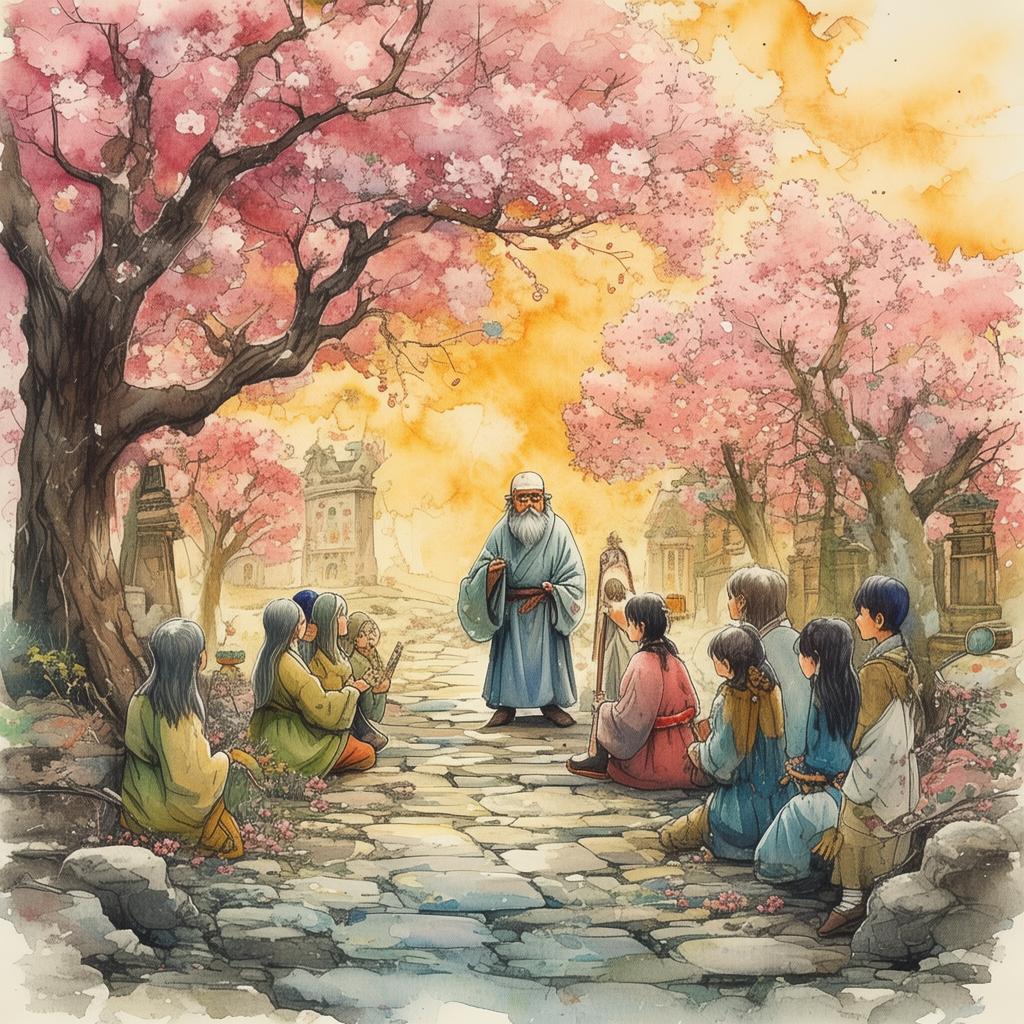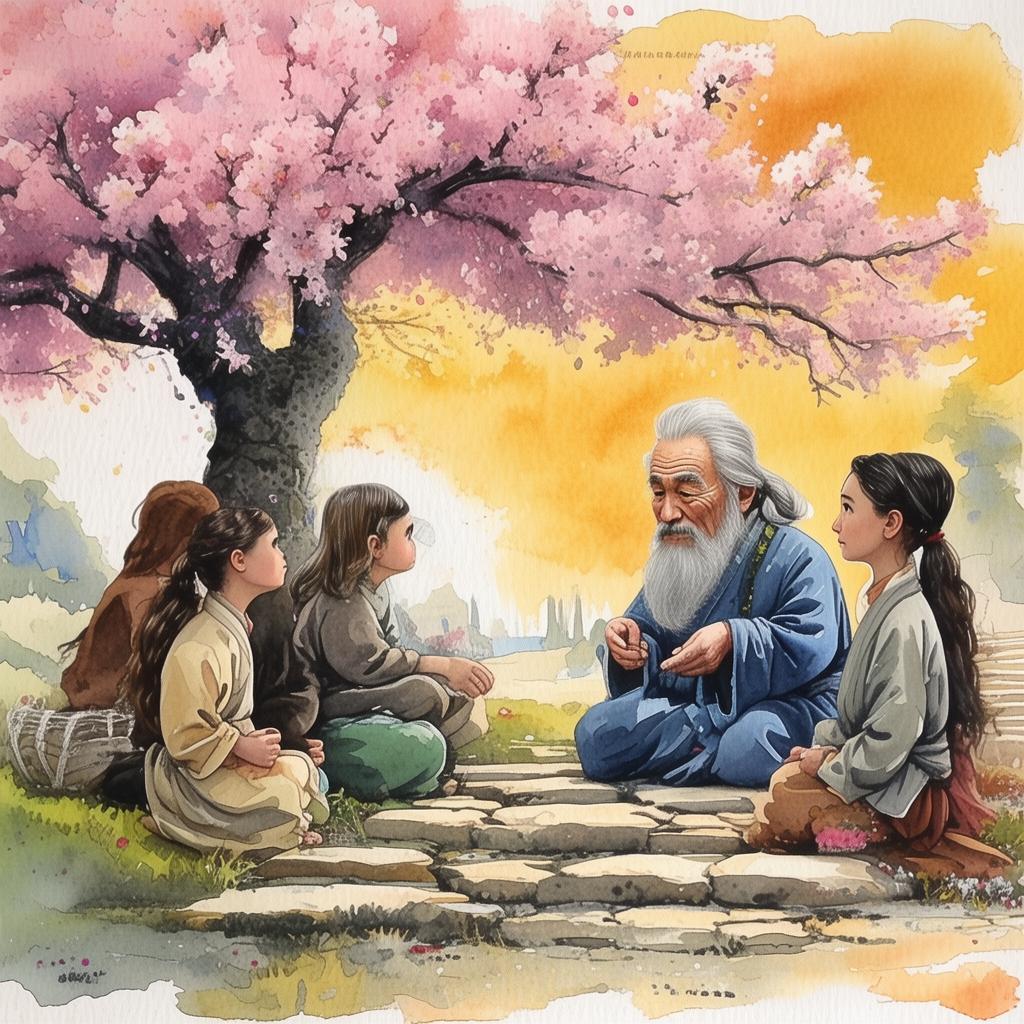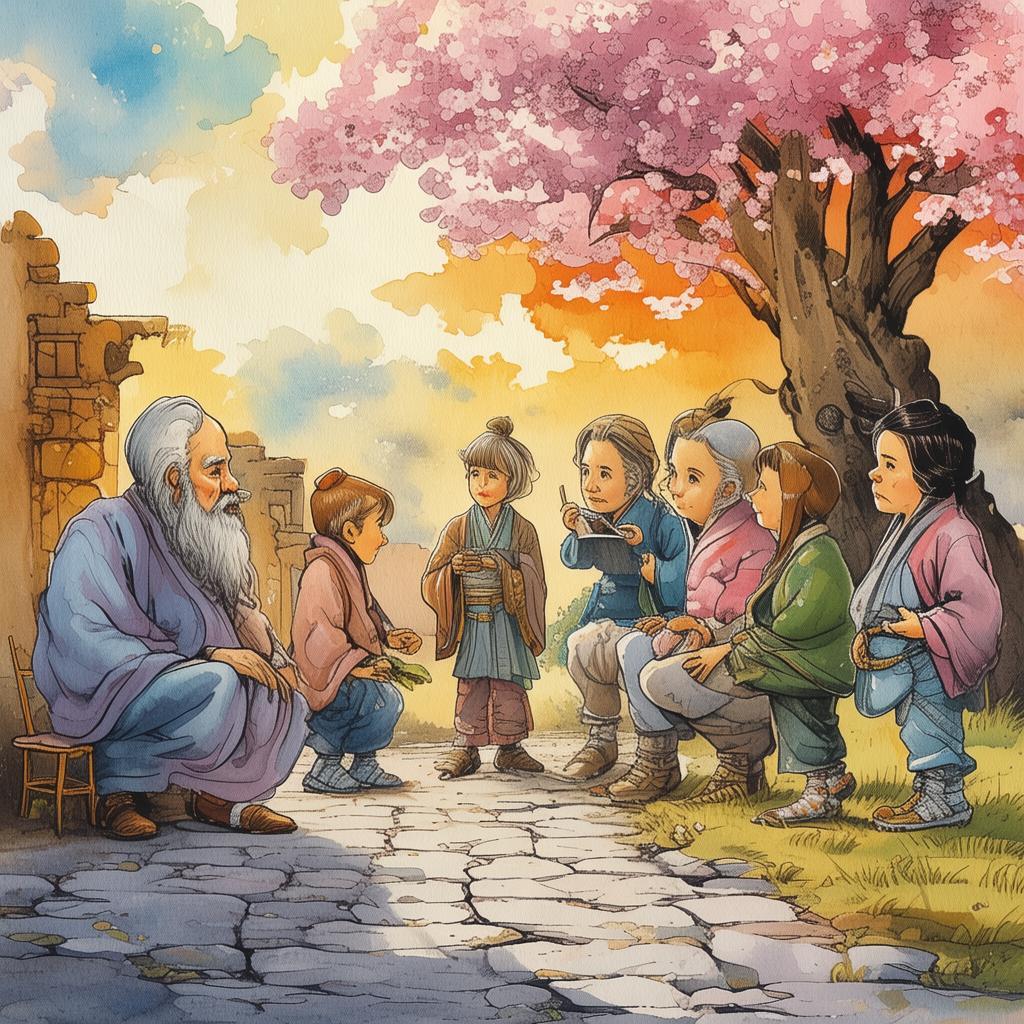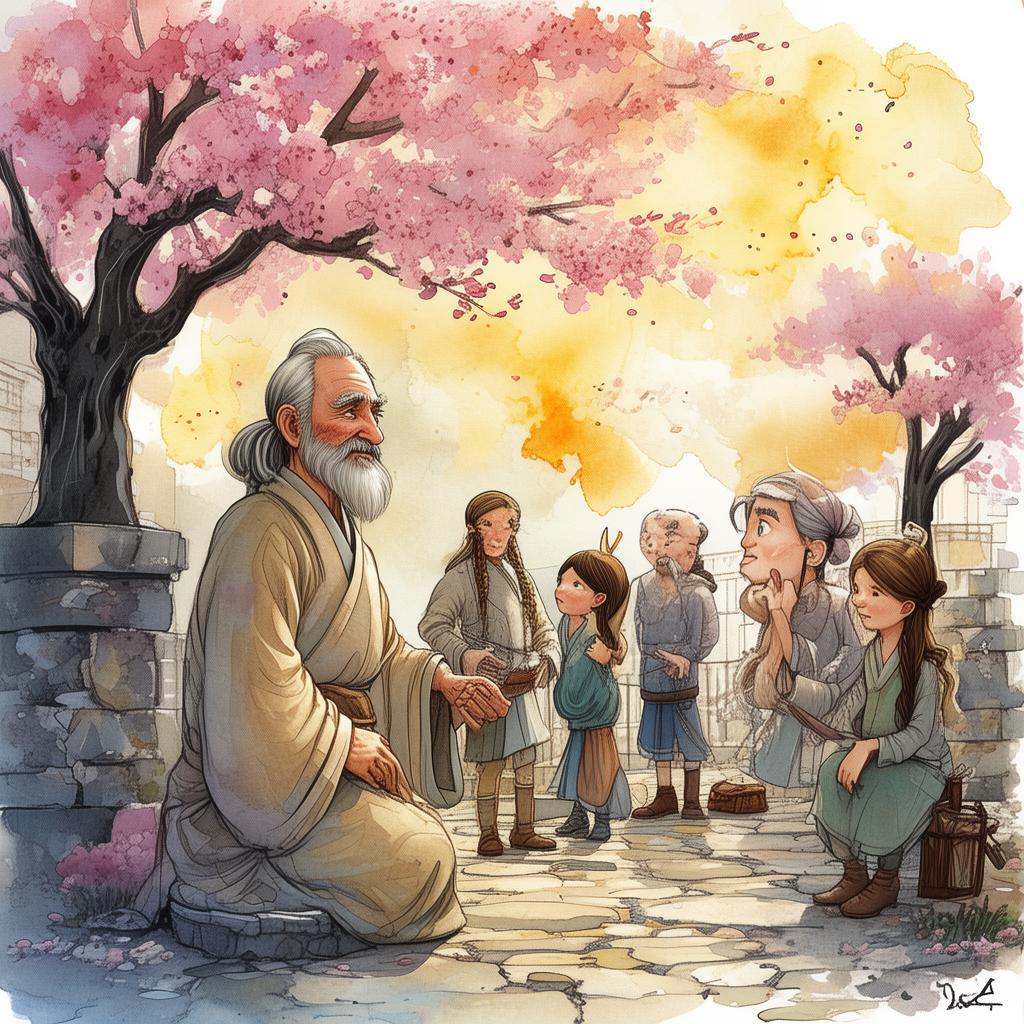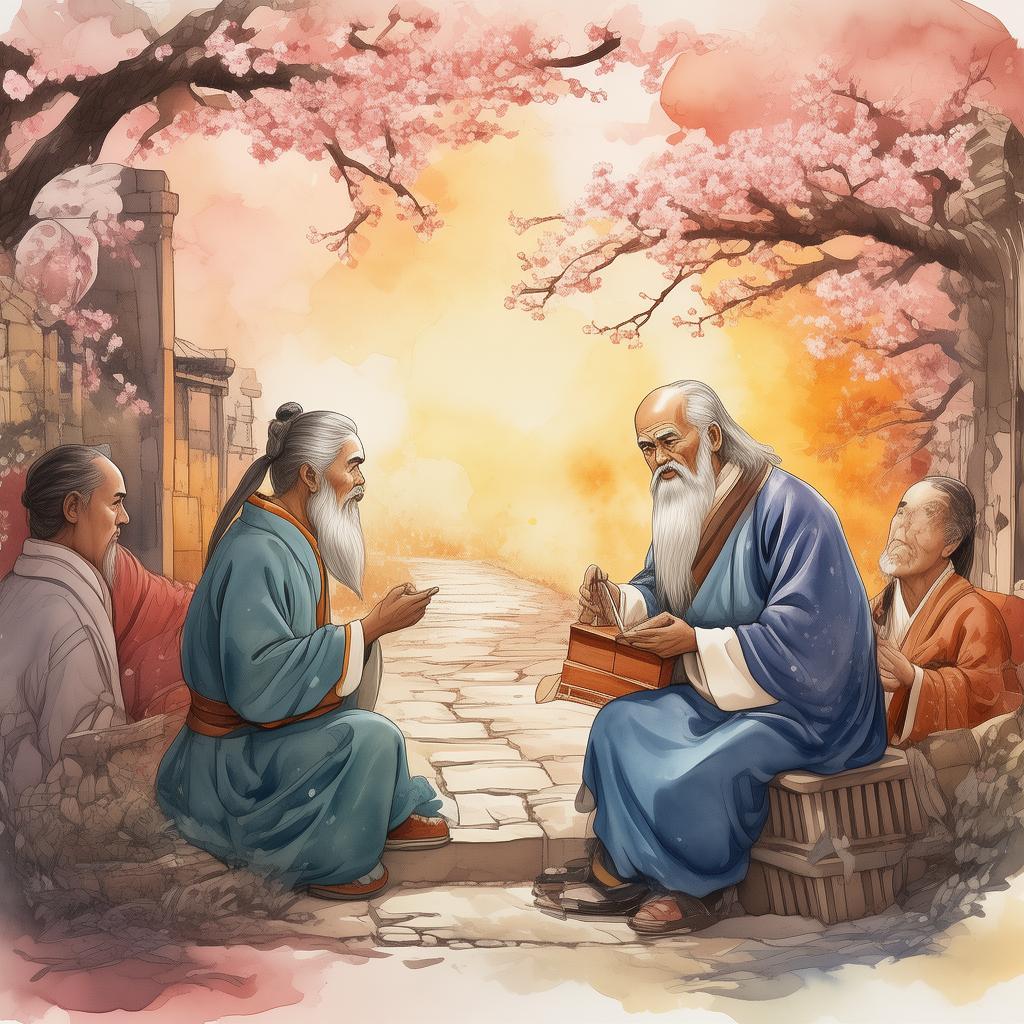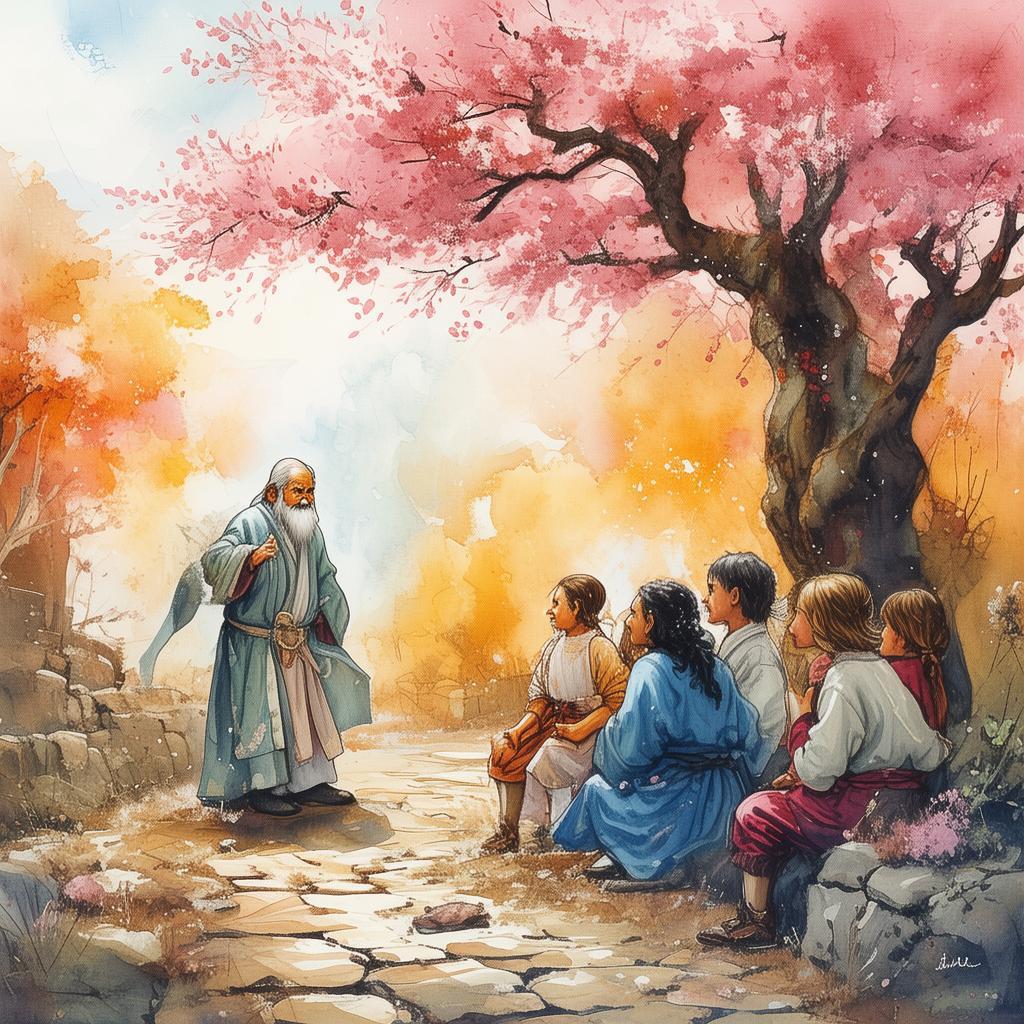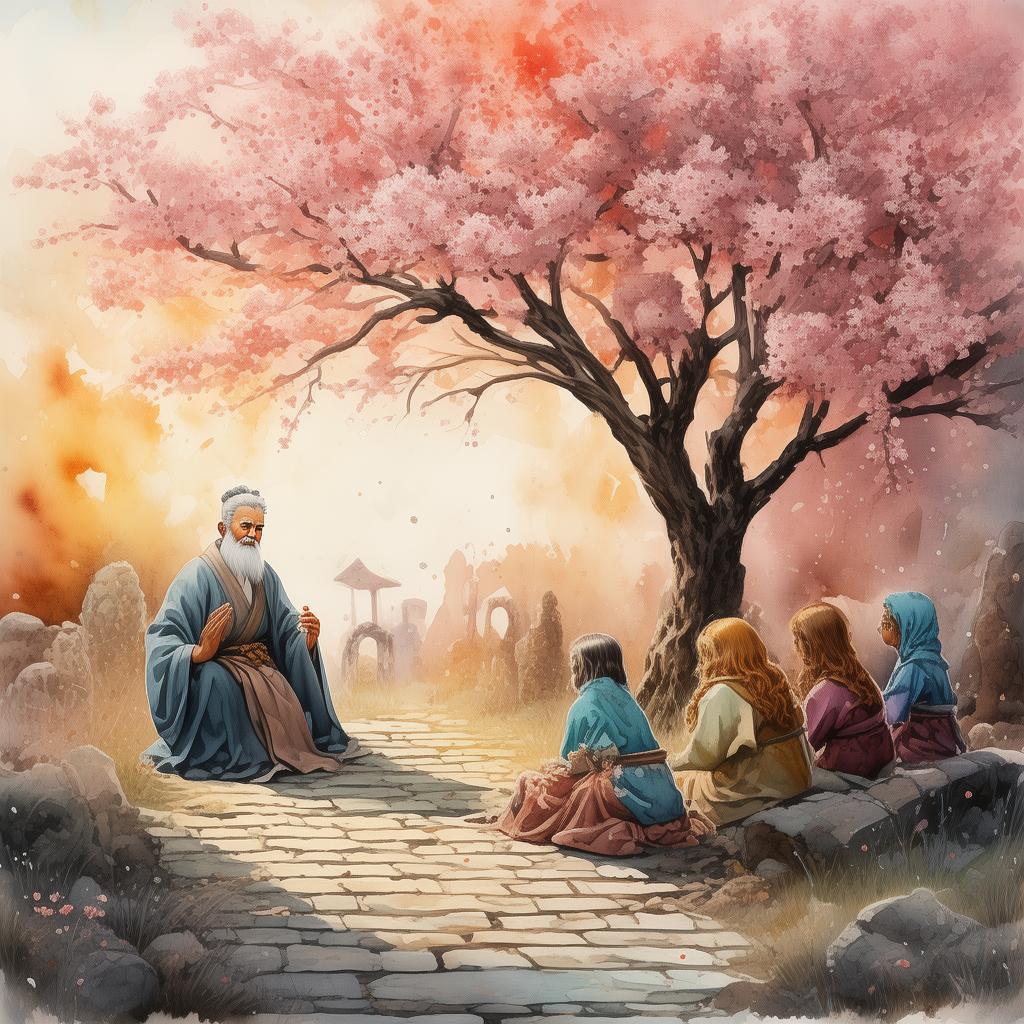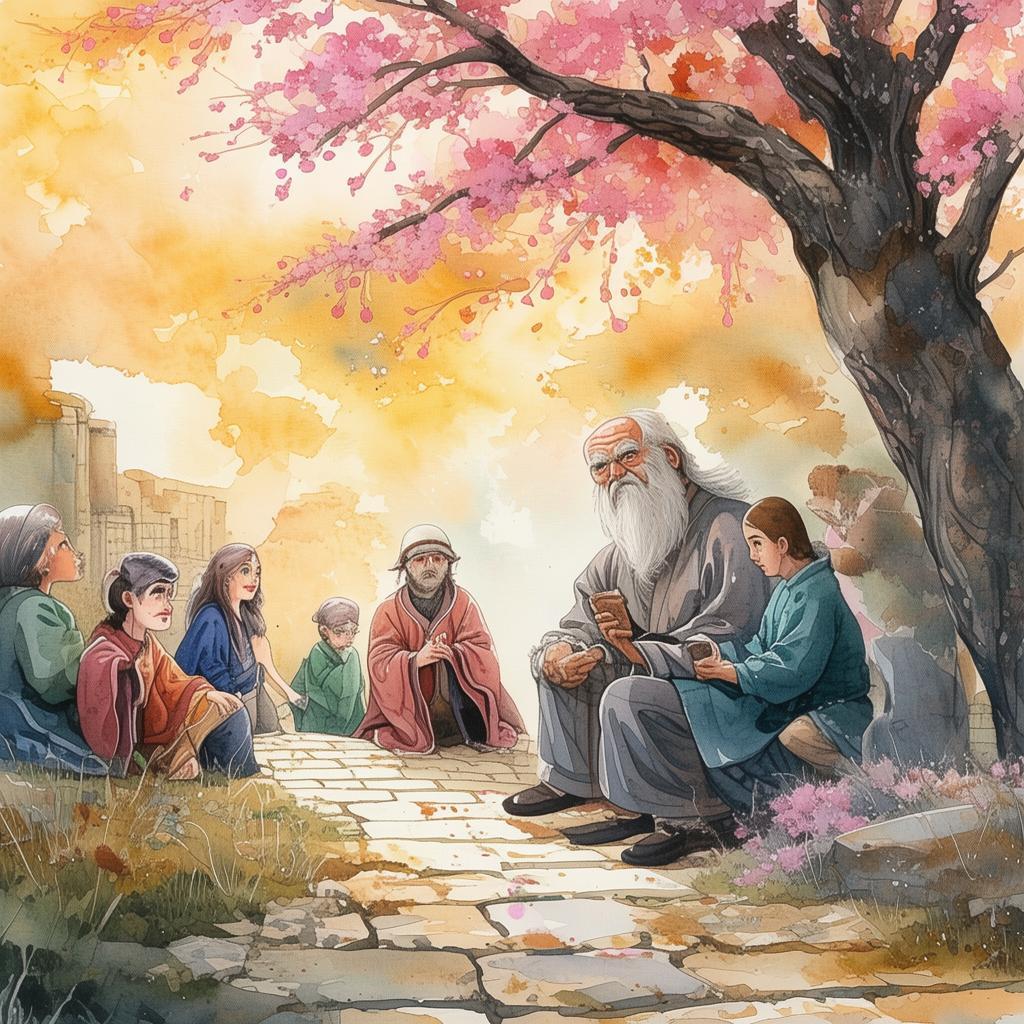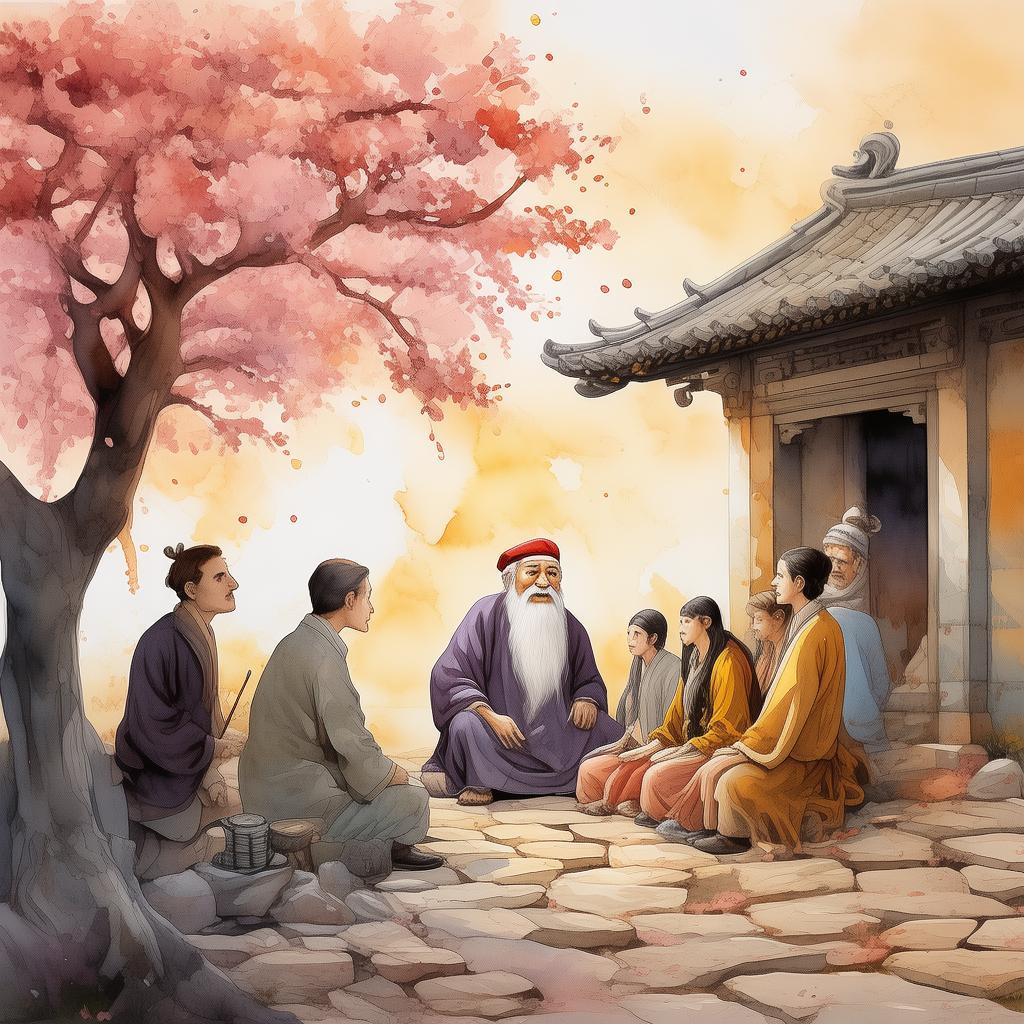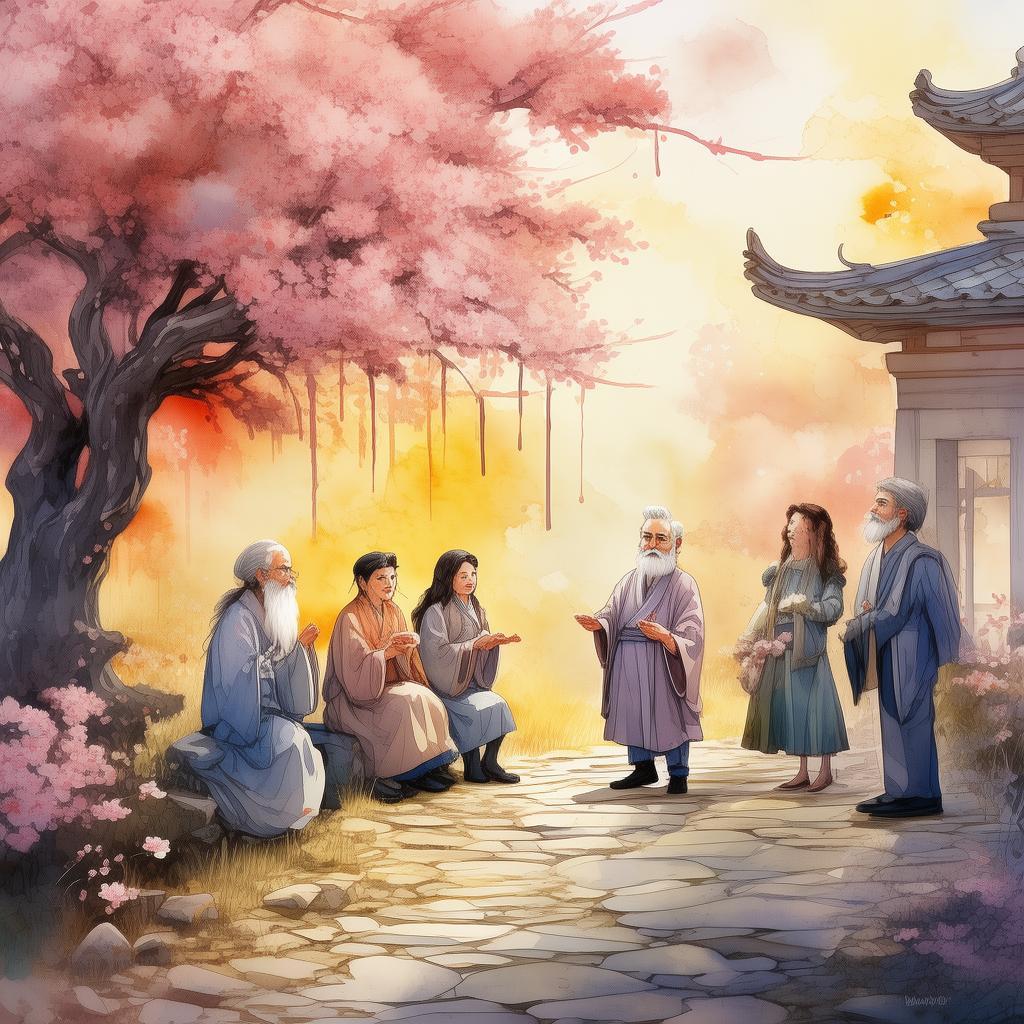The Scribe and the Sages: A Tale of Unwritten Wisdom
In the heart of ancient China, amidst the towering mountains and the whispering rivers, there lived a sage whose words held the power to change the fate of a nation. His teachings were so profound, so imbued with the essence of the universe, that they were said to transcend the spoken and the written word. To preserve these invaluable lessons, a young scribe named Meng Hua was chosen for a sacred mission: to transcribe the sage’s wisdom.
Meng Hua was not an ordinary scribe. His fingers, though calloused from the endless hours spent copying texts, were capable of capturing the most intricate of strokes. His eyes, however, were not merely focused on the ink and the paper before him. They held a deep, unquenchable thirst for knowledge and the truth that lay hidden within the sage's words.
One bright morning, as the sun painted the sky with hues of gold and crimson, the sage called Meng Hua to his side. The sage was an elderly man with a gentle demeanor and eyes that seemed to pierce through the soul. He spoke softly, his voice resonating with the wisdom of ages.
“Meng Hua, you have been with me for many moons now. I have shared with you the tales of the ancient sages, the philosophies of the mountains, and the rhythms of the heavens. But there is a truth that I cannot convey to you in words. It is a truth that cannot be written or spoken, for it exists beyond the tangible and the known.”
Meng Hua listened intently, his heart racing with the prospect of uncovering something so profound. The sage continued, his eyes filled with a depth that seemed to speak of eons.
“The wisdom of the universe is like a river, flowing endlessly and unyieldingly. It carves its path through the mountains, through the valleys, and through the hearts of men. But the river cannot be contained within a single vessel. Its essence, its pure, unadulterated flow, can only be experienced.”
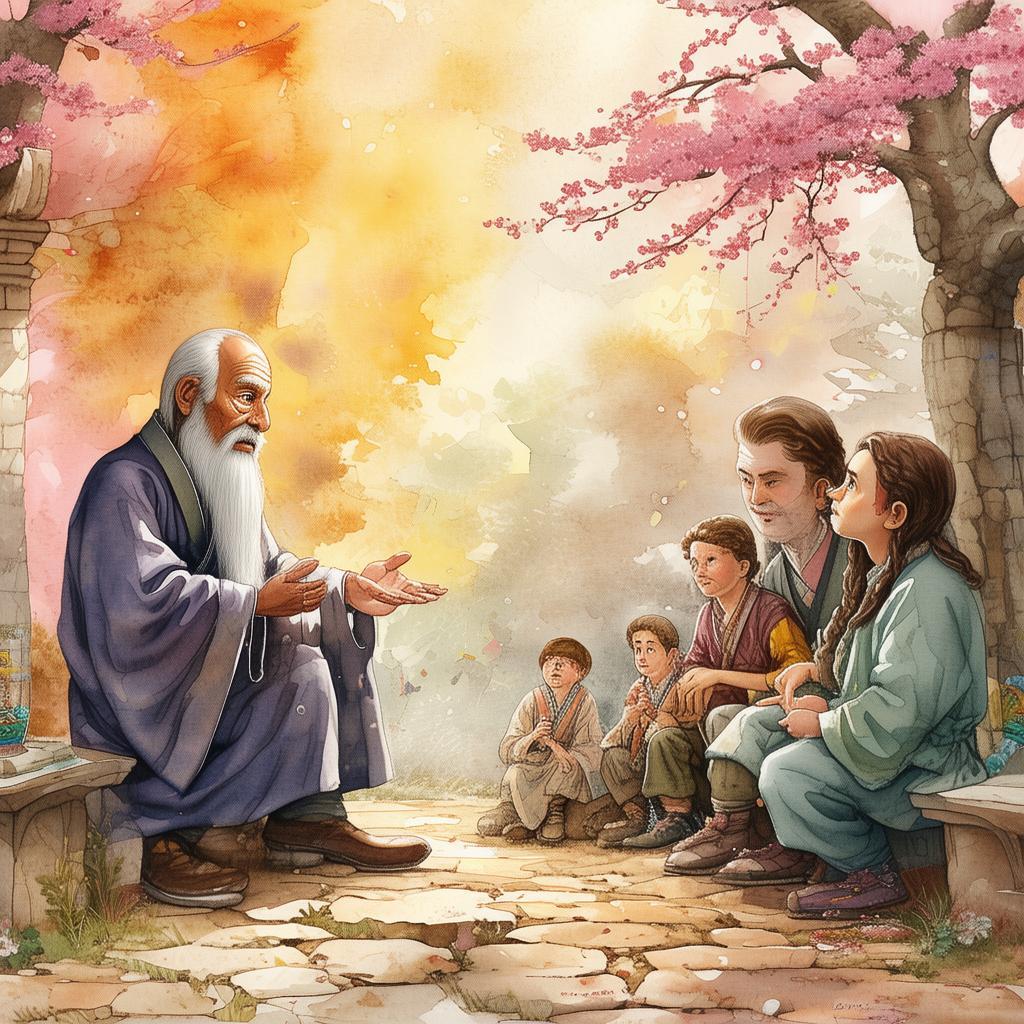
The sage paused, allowing the weight of his words to settle within Meng Hua's young soul. Then, he gestured to the scribe, a faint smile playing on his lips.
“I have given you all that I can in words. But you must understand that some truths are beyond the grasp of language. You must seek them in the silence, in the solitude, in the very essence of your being.”
Meng Hua was taken aback. He had always believed that the written word was the ultimate preserve of truth. The sage's words shattered that belief, opening his eyes to the vastness of what lay beyond the page.
Over the following weeks, Meng Hua began to search for the truth the sage spoke of. He ventured into the mountains, seeking solace in the stillness of nature. He spent days and nights in meditation, trying to connect with the essence of his own being. He spoke with the wise men and the simple folk, seeking insights into the unspoken.
As time passed, Meng Hua began to realize that the sage’s wisdom was indeed beyond the grasp of language. The teachings that he once thought could be captured on paper now seemed to exist in a realm of their own. He discovered that the essence of the sage’s wisdom was in the act of living, in the experience of the world.
One evening, as the moon hung full in the sky, Meng Hua returned to the sage's presence. The old man’s eyes twinkled with a knowing glint.
“You have learned well, Meng Hua,” he said. “The wisdom I spoke of is not in the words, but in the silence between them. It is in the way you now walk through the world, unburdened by the desire to capture everything in writing.”
Meng Hua bowed deeply, his heart filled with a profound gratitude. He understood now that the true essence of the sage’s wisdom was not in the words he had transcribed, but in the journey he had embarked upon. He had come to realize that some truths were too profound to be captured, too vast to be confined within the limits of language.
And so, Meng Hua returned to his life as a scribe, not with the intention of recording the sage’s wisdom, but with the intention of living it. He became a bridge between the spoken and the unspoken, a guardian of the silent truths that could not be contained in ink.
The tale of Meng Hua and the sage spread far and wide, becoming a parable of the ineffable nature of wisdom. It taught that some truths are beyond the reach of language, that the essence of life lies in the experience, not the recording, and that the sage’s wisdom was not in the words, but in the journey of discovery.
The Scribe and the Sages: A Tale of Unwritten Wisdom served as a testament to the enduring power of the human spirit to seek, to learn, and to embrace the unspoken truths of the universe.
✨ Original Statement ✨
All articles published on this website (including but not limited to text, images, videos, and other content) are original or authorized for reposting and are protected by relevant laws. Without the explicit written permission of this website, no individual or organization may copy, modify, repost, or use the content for commercial purposes.
If you need to quote or cooperate, please contact this site for authorization. We reserve the right to pursue legal responsibility for any unauthorized use.
Hereby declared.
